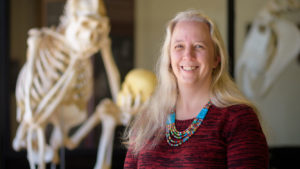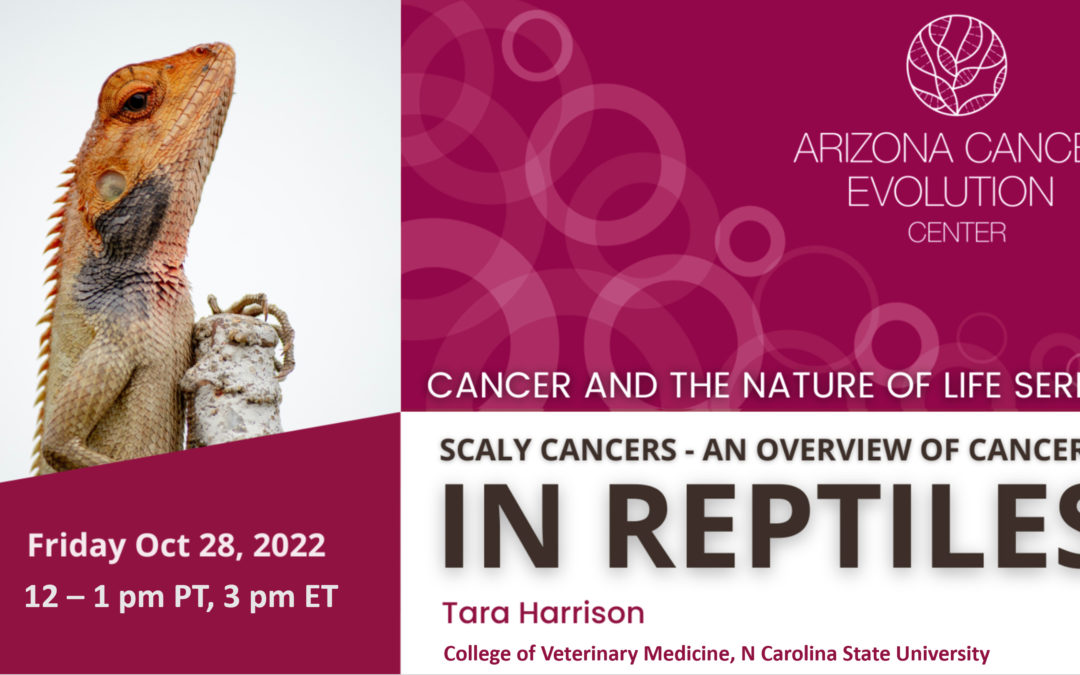 Cancer and the Nature of Life Discussion Series.
Cancer and the Nature of Life Discussion Series.
Snakes get a lot of cancer and their disease is often aggressive. Some lizard species, such as bearded dragons, also seem particularly prone to cancer. What’s going on and how can these animals best be treated? ACE researcher Dr Tara Harrison of the College of Veterinary Medicine, N Carolina State University is an expert on looks for the answers. Join our Zoom public discussion on Friday, 28th October, 12- 1pm AZ & PT (3-4pm EST).
Register for the event here: https://asu.zoom.us/webinar/register/WN_9QObmY8aRQ-GTANxPR6edw
Tara’s Biography:
Dr. Tara Harrison graduated from Michigan State University’s College of Veterinary Medicine with her DVM degree. Afterward, she earned a Masters of Preventive Veterinary Medicine degree at the University of California-Davis, where she worked with Dr. Linda Munson as a post-doctoral fellow in the contraceptive advisory group. She did veterinary internships at Toledo Zoo and Wildlife Safari. She has worked at Potter Park Zoo and as an Adjunct Assistant Professor at Michigan State University. She then went back to UC Davis and the Sacramento Zoo as an Assistant Professor. She is currently an Associate Professor at North Carolina State University’s College of Veterinary Medicine Zoo and Exotic Animal Medicine Service. She is board certified in the American College of Zoological Medicine, the American College of Veterinary Preventive Medicine, and the European College of Zoological Medicine (Zoo Health Management). She is certified in veterinary acupuncture. Dr. Harrison is a co-founder of the Exotic Species Cancer Research Alliance and is an investigator with the Arizona Cancer and Evolution Center. The focus of her research is on cancer prevalence and treatments across species.
Facebook: @cancercollaboration Twitter: @zooexoticcancer @CancerInExotics @ace_arizona
Moderator: Zachary Compton. Zach  is a PhD Candidate in Evolutionary Biology at the Arizona Cancer Evolution Center and currently serves as the Co-Director for the Arizona Cancer Evolution Center (ACE) Scholars program. He is interested in all of the intersections that cancer biology makes with evolutionary theory, particularly comparative oncology – the study of cancer across the tree of life. Zach is passionate about bringing evolution into the cancer clinic, as well as the community.
is a PhD Candidate in Evolutionary Biology at the Arizona Cancer Evolution Center and currently serves as the Co-Director for the Arizona Cancer Evolution Center (ACE) Scholars program. He is interested in all of the intersections that cancer biology makes with evolutionary theory, particularly comparative oncology – the study of cancer across the tree of life. Zach is passionate about bringing evolution into the cancer clinic, as well as the community.




